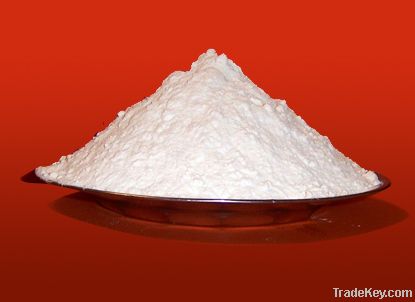

سعر فوب
أحصل على آخر سعر1000 USD / Metric Ton
|1 Twenty-Foot Container Minimum Order
بلد:
China
نموذج رقم:
98% Battery Grade
سعر فوب:
1000 USD / Metric Ton أحصل على آخر سعر
الموقع:
China (mainland)
سعر الحد الأدنى للطلب:
1000 per Metric Ton
الحد الأدني للطلب:
1 Twenty-Foot Container
تفاصيل التغليف:
25kg/ bag, 25kg/ fibre barrel
موعد التسليم:
15-30 days after the receipt of your deposit
القدرة على التوريد:
500 Metric Ton per Month
نوع الدفع:
T/T, Western Union, PayPal
مجموعة المنتج :
-
الشخص الذي يمكن الاتصال به Mr. Joshua
JUBAOXINCHENG A-10 QUANZHOU,FUJIAN,CHINA, Quanzhou, Fujian
Zinc chloride is the name of chemical compound with the formula ZnCl2 and its hydrates. Zinc chlorides, of which nine crystalline forms are known, are colorless or white, and are highly soluble in water. ZnCl2 itself is hygroscopic and even deliquescent. Samples should therefore be protected from sources of moisture, including the water vapor present in ambient air. Zinc chloride finds wide application in textile processing, metallurgical fluxes, and chemical synthesis. No mineral with this chemical composition is known aside from a very rare mineral, simonkolleite, Zn5(OH)8Cl2·H2O.
Applications
As a metallurgical fluxZinc chloride has the ability to attack metal oxides (MO) to give derivatives of the formula MZnOCl2. This reaction is relevant to the utility of ZnCl2 as a flux for soldering — it dissolves oxide coatings exposing the clean metal surface. Fluxes with ZnCl2 as an active ingredient are sometimes called "Tinner's Fluid". Typically this flux was prepared by dissolving zinc foil in dilute hydrochloric acid until the liquid ceased to evolve hydrogen; for this reason, such flux was once known as killed spirits. Because of its corrosive nature, this flux is not suitable for situations where any residue cannot be cleaned away, such as electronic work. This property also leads to its use in the manufacture of magnesia cements for dental fillings and certain mouthwashes as an active ingredient.
In organic synthesisIn the laboratory, zinc chloride finds wide use, principally as a moderate-strength Lewis acid. It can catalyze (A) the Fischer indole synthesis, and also (B) Friedel-Crafts acylation reactions involving activated aromatic rings
Related to the latter is the classical preparation of the dye fluorescein from phthalic anhydride and resorcinol, which involves a Friedel-Crafts acylation. This transformation has in fact been accomplished using even the hydrated ZnCl2 sample shown in the picture above.
Hydrochloric acid alone reacts poorly with primary alcohols and secondary alcohols, but a combination of HCl with ZnCl2 (known together as the "Lucas reagent") is effective for the preparation of alkyl chlorides. Typical reactions are conducted at **0 °C. This reaction probably proceeds via an SN2 mechanism with primary alcohols but SN1 pathway with secondary alcohols.
Zinc chloride also activates benzylic and allylic halides towards substitution by weak nucleophiles such as alkenes[:
In similar fashion, ZnCl2 promotes selective NaBH3CN reduction of tertiary, allylic or benzylic halides to the corresponding hydrocarbons.
Zinc chloride is also a useful starting reagent for the synthesis of many organozinc reagents, such as those used in the palladium catalyzed Negishi coupling with aryl halides or vinyl halides. In such cases the organozinc compound is usually prepared by transmetallation from an organolithium or a Grignard reagent, for example:
Zinc enolates, prepared from alkali metal enolates and ZnCl2, provide control of stereochemistry in aldol condensation reactions due to chelation on to the zinc. In the example shown below, the threo product was favored over the erythro by a factor of 5:1 when ZnCl2 in DME/ether was used. The chelate is more stable when the bulky phenyl group is pseudo-equatorial rather than pseudo-axial, i.e., threo rather than erythro.
In textile processing
Concentrated aqueous solutions of zinc chloride (more than *4% weight/weight zinc chloride in water) have the interesting property of dissolving starch, silk, and cellulose. Thus, such solutions cannot be filtered through standard filter papers. Relevant to its affinity for these materials, ZnCl2 is used as a fireproofing agent and in fabric "refresheners" such as Febreze.
Smoke bombs
Smoke bombs ("HC") contain zinc oxide and hexachloroethane, which when ignited react to form zinc chloride smoke.
Fingerprint detection
Ninhydrin reacts with amino acids and amines to form a colored compound “Ruhemann’s purple” (RP). Spraying with a zinc chloride solution forms a 1:1 complex RP:ZnCl(H2O)2, which is more readily detected as it fluoresces better than Ruhemann’s purple.
Disinfectant
Historically a dilute aqueous solution of zinc chloride was used as a disinfectant under the name "Burnett's Disinfecting Fluid". It is also used in some commercial brands of antiseptic mouthwash.
Safety considerations
Zinc chloride is a skin and respiratory irritant according to its MSDS. Precautions that apply to anhydrous ZnCl2 are those applicable to other anhydrous metal halides, i.e. hydrolysis can be exothermic and contact should be avoided. Concentrated solutions are acidic and corrosive and specifically attack cellulose and silk as Lewis acids.
| بلد: | China |
| نموذج رقم: | 98% Battery Grade |
| سعر فوب: | 1000 / Metric Ton أحصل على آخر سعر |
| الموقع: | China (mainland) |
| سعر الحد الأدنى للطلب: | 1000 per Metric Ton |
| الحد الأدني للطلب: | 1 Twenty-Foot Container |
| تفاصيل التغليف: | 25kg/ bag, 25kg/ fibre barrel |
| موعد التسليم: | 15-30 days after the receipt of your deposit |
| القدرة على التوريد: | 500 Metric Ton per Month |
| نوع الدفع: | T/T, Western Union, PayPal |
| مجموعة المنتج : | - |